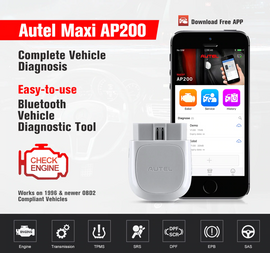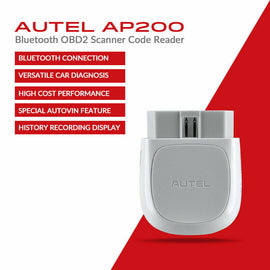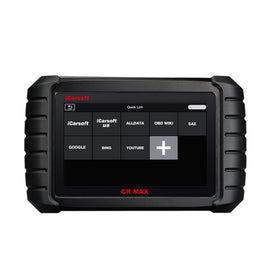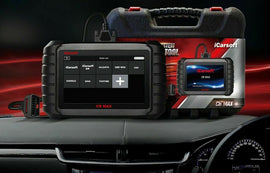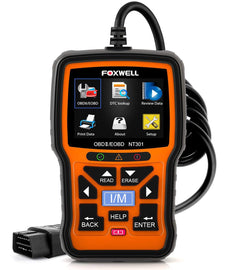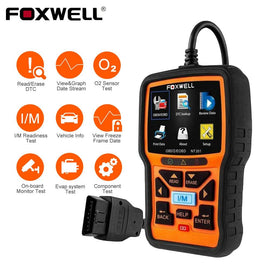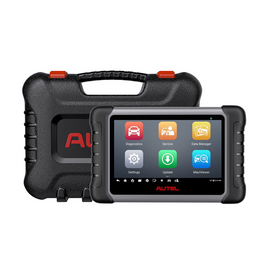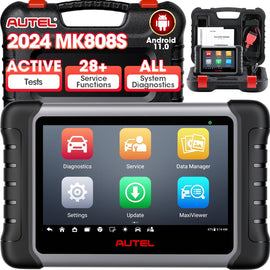Communication is the fundamental aspect of any auto scanner. Therefore, how a cable & adapter kit works tells the whole tale. This one small wire can make complete models and systems. Given the mix of connectors and protocols used in modern cars on Australian roads, it comes down to selecting the right kit.
Using the correct vehicle scanner cable kit will help you perform accurate diagnostics and boost your tool's overall capabilities. Now, you have the control you need.
Let’s talk about the significance of cables and adapters in detail.
What are the Vehicle Communication Standards
Before you choose any adapters or cables, let’s understand how the communication works with them and why you need a suitable one.
Modern cars communicate using the OBD2 protocol, but older or region-specific cars may use an additional connector and may vary by manufacturer. So, a cable kit is necessary. Common communication aspects include:
-
The OBD2 scanner cable works mostly with the car models from 2006 in Australia.
-
They are available with proprietary connectors for specific brands (like 20-pin, 10-pin, 14-pin, and so on).
-
For tougher protocols, you can get support like trucks and commercial vehicles.
-
Communication is custom-made for hybrid and electric cars.

How to Choose the Right Cable & Adapter Kit For Your Vehicle?
This question is quite valid, and that is why you need to focus on the following factors when selecting a cable & adapter kit for your automotive diagnostic tool:
1. Match the Kit to Your Diagnostic Scanner
Not every adapter is compatible with every scanner, and this is a major mistake even for professionals sometimes.
So, always check the compatibility through the following checklist:
-
Support for pin configuration
-
Matching voltage and communication standards
-
Capability for bi-directional communication
-
Support for firmware or software updates
If you are using a Bi-directional scanner, you must know that the cable can handle commands sent back to the vehicle. This includes many things such as injector tests, actuator tests, and ABS brake.
2. Evaluate Your Vehicle Types and Use Cases
To figure out the right tools, think about the kinds of vehicles you usually work on.
If you're dealing with Australian cars
Look for a kit that works well with a diagnostic scan tool specifically for Australian vehicles. This should cover brands like Toyota, Holden, Ford AU models, Mitsubishi, Nissan, and Hyundai. These often need extra brand-specific connectors if you want to go beyond just basic OBD2 readings.
For everyday car owners
If you’re just using an OBD2 scanner for personal use, a standard OBD2 cable should do the trick unless you’re working on older or imported vehicles. Still, it might be a good idea to get a more comprehensive kit so you’re ready for any different models in your garage.
For workshops and mobile techs
A complete vehicle diagnostic tool set is essential. You’ll need various adapters to tackle vehicles from Europe, America, Japan, and Australia without any hassle.
Key Features to Look for in a Quality Cable & Adapter Kit
When picking the right cable & adapter kit for your OBD2 tool, focus on the key features that will actually affect how long it lasts and how well it works.
1. Build Quality and Durability
When evaluating a cable & adapter kit, these features ensure reliable performance, reduce wear and tear, and protect your devices from signal loss or damage.
-
Heat-resistant connectors
-
Reinforced strain relief
-
Thick insulation for signal integrity
-
Corrosion-resistant pins
Using a low-quality cable might lead to spotty connections or even give you incorrect error messages.
2. Compatibility with Advanced Diagnostics
Certain high-end scanners, such as the best car diagnostic scan tool series, require top-notch adapters to ensure smooth module coding, service resets, and live data streaming.
3. OEM-Specific Connectors
Check out the connectors used by different manufacturers, like these:
-
BMW 20-pin
-
Nissan 14-pin
-
Honda 3-pin
-
Toyota 22-pin
If you often deal with certain brands, it’s a good idea to focus on these when choosing your car diagnostic adapter.
4. Length and Flexibility
Having longer cables is really useful when you're crawling under dashboards, particularly in cramped areas. Plus, flexible designs that don't tangle make it much easier to move around.
5. Budget Considerations
Workshops often do better with high-quality, durable kits, but beginners might find it easier to go for budget-friendly diagnostic tools that cover the basics without all the extra features.
Tips for Choosing Vehicle Diagnostic Adapters Wisely
Check out these practical tips for improving how you choose vehicle diagnostic adapters:
-
Start by checking the recommended cable list from your scanner brand.
-
Make sure it supports bi-directional control and advanced diagnostics.
-
Look for kits that are well compatible with OEM parts.
-
Steer clear of cheap, unshielded cables since they can mess with data signals.
-
Finally, find kits that clearly label each connector.
These little details can really help make troubleshooting easier and avoid costly mistakes.
Conclusion
Choosing the right cable & adapter kit is essential for accurate vehicle diagnostics. With a quality diagnostic scan tool for Australian cars and reliable OBD2 scanner cables, you can cover a wide range of vehicles, from everyday cars to hybrid and imported models.
At Auto Lines Australia, we provide durable, OEM-compatible kits that ensure seamless communication with your scanner, enabling efficient troubleshooting and advanced diagnostics.
Whether you’re a workshop owner, a mobile tech, or a car owner, having the right tools saves time, reduces errors, and improves performance. Don’t forget, you can also buy GPS trackers in Australia to complement your diagnostics setup.
FAQs
1. How do I choose the right vehicle scanner cable kit?
Check scanner compatibility, pin configuration, voltage, communication standards, and bi-directional support. Match the kit to your vehicle types and ensure the connectors comply with both standard and manufacturer-specific protocols.
2. Which car diagnostic adapter is compatible with my OBD2 scanner?
Use adapters recommended by your scanner brand. Verify support for bi-directional communication, OEM connectors, and advanced diagnostics to ensure seamless compatibility with your specific OBD2 scanner.
3. What factors should I consider when selecting vehicle diagnostic adapters?
Consider build quality, durability, connector types, cable length, flexibility, compatibility with advanced diagnostics, and your vehicle types to ensure reliable performance and accurate scanning results.

